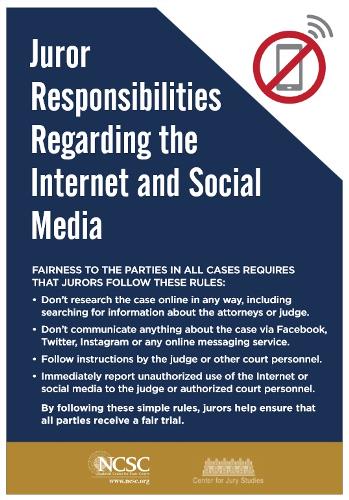During trial:
- Do arrive on time and return promptly after breaks and lunch. The trial cannot proceed until all jurors are present.
- Do pay close attention. If you cannot hear what is being said, raise your hand and let the judge know.
- Do keep an open mind all through the trial.
- Do listen carefully to the instructions read by the judge.
- Do turn off electronic devices such as cell phones, tablets and iPods (during trial and deliberations).
- Don't try to guess what the judge thinks about the case. Remember that rulings from the bench do not reflect the judge’s personal views.
- Don't talk about the case, or issues raised by the case with anyone, including other jurors, while the trial is going on, and don't talk to the lawyers, parties, or witnesses about anything. This will avoid the impression that something unfair is going on.
- Don't let yourself get information about the case from any other outside source. If you accidentally hear outside information about the case during the trial, tell a member of the court staff in private.
- Don't take notes during the trial unless the judge gives you permission to do so.
During deliberation:
- Do work out differences between yourself and other jurors through complete and fair discussions of the evidence and of the judge’s instructions.
- Don't lose your temper, try to bully or refuse to listen to the opinions of other jurors.
- Don't talk to anyone about your deliberations or about the verdict until the judge discharges the jury. After discharge, you may discuss the verdict and the deliberations with anyone, but don't feel obligated to do so — no juror can be forced to talk without a court order.
- Don't draw straws, flip coins or otherwise arrive at your verdict by chance, or the decision will be illegal.

Click here to visit the National Center for State Courts website for more information.